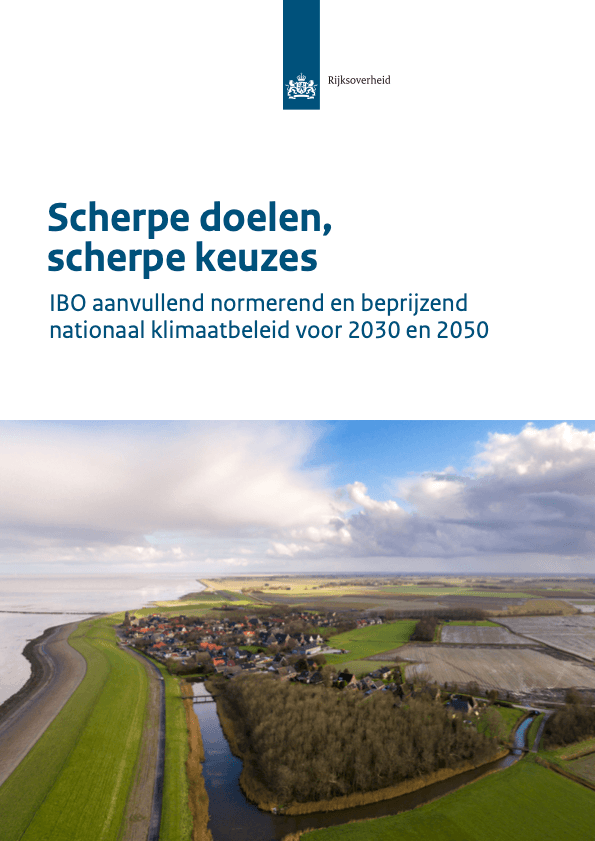IBO climate policy 2030


The request for this project came jointly from multiple ministries as the project was carried out as an Interdepartementaal Beleidsonderzoek (IBO) project. Kalavasta, together with CE Delft and Berenschot, was commissioned to evaluate and propose regulatory measures to reduce greenhouse gas emissions in the Dutch society until 2030. Following the decision of the European Union to increase the emission reduction target for 2030 from 40% to 55%, the government of the Netherlands decided to increase its national greenhouse gas emission target. The goal for regulatory interventions is now set on delivering a 60% reduction in emissions in 2030 compared to the baseline of year 1990. The extra emission reductions act as an insurance against contingencies. The increased ambition requires extra regulatory interventions based on the 2022 analysis of the annual Klimaat- en energieverkenning (KEV) by PBL. The motivation behind this project was to analyse current policy to evaluate its sufficiency for meeting the new 2030 targets and to suggest additional regulatory interventions where the goals were likely not met.
Reducing greenhouse gas emissions by 60% from the 1990 levels is a challenging task that requires changes in all sectors of society. Therefore, this project covers policy relating to electricity generation, industry, the built environment, land use, agriculture, mobility and transport, and circularity. Kalavasta was responsible for the coverage of the industry, agriculture, and land use sectors.
This project consisted of three phases. The first phase consisted of analysing the current state of policy to evaluate whether it was sufficient to meet the new 2030 targets. If it was found lacking, additional regulatory interventions were proposed. The government working group evaluated the findings of the first phase and formulated additional policies based on the work done in the first phase as well as their expertise. These additional policies were then evaluated. The third phase of the project consisted of reviewing the final report of the IBO Klimaatbeleid 2030. Kalavasta was involved at the start proposing policies, in the second phase reviewing policies proposed by IBO and at the end reviewing the final report with the policy packages proposed by IBO.